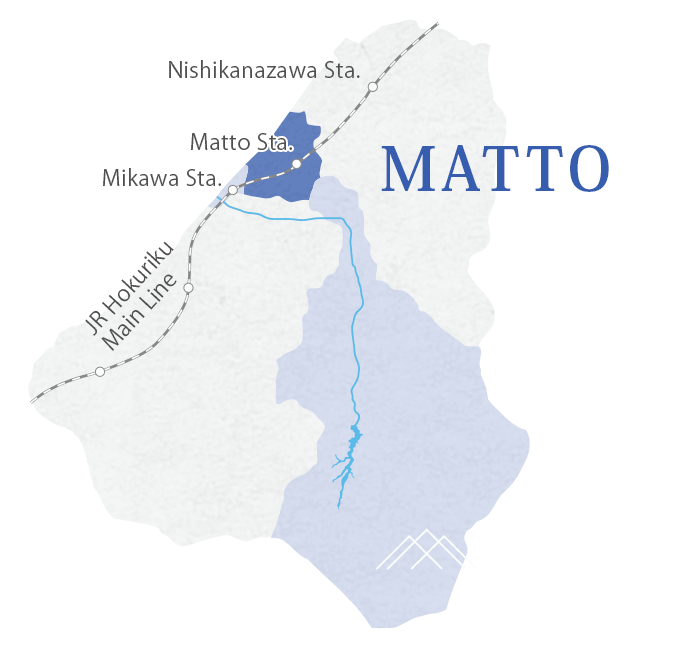
It takes only 10 minutes by local train from JR Kanazawa Station to IR Matto Station. How about exploring Matto, the town of haiku poems? New discoveries await you.
Train Park Hakusan (Hakusan Municipal High Speed Rail Visitor Center)
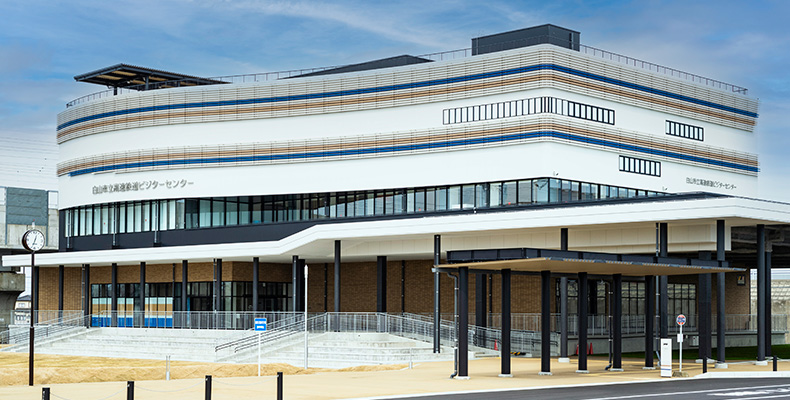
Train Park Hakusan is an interactive facility adjacent to the Hakusan General Rolling Stock Yard, the Hokuriku Shinkansen Line train depot.
With a range of exhibits to explore railroad history and technology, driving simulators and an observation deck to get up close with the Shinkansen, this facility is exciting for both children and adults—not to mention rail fans.
| Address | 2828-1 Miyabo-machi, Hakusan |
|---|---|
| Open | 9:00am ~ 5:00pm |
| Closed | Wednesdays (or the following day if the Wednesday is a national holiday) Year-end and New Year holidays (December 29 to January 3) |
| Admission | [1F]Shinkansen Learning & Interactive Area [Admission Tickets] Adults: 500 yen / Children: (junior high school student and under) Free Hokuriku Shinkansen Driving simulator * Separate admission ticket above is required Large 300 yen / Small 100 yen The Hokuriku Shinkansen Driving simulator is available in approx. 15-minute slots per person. (the same time slots apply to the large simulator and two small simulators) [1F]Tourist Information & Souvenir Area [Free Admission] [3F]Children’s Play Area * Must be accompanied by an adult.Up to 4 children per adult * Socks must be worn in the Children’s Play Area.Guests must bring your own socks. * Please refrain from use of the area only by high school students and older. [Admission Tickets] Adults: 500 yen / Children: (junior high school student and under) Free * There is an admission limit of 100 people per hour. * Limited to 120 minutes from time of admission. [4F]Shinkansen Observation Area Admission with a ticket for either 1F or 3F [5F]Rooftop Observation Deck Area [Free Admission] |
| Access | 15 min walk from IR Kaga-Kasama Station. Shuttle bus service from the west exit of IR Kaga-Kasama Station (approx. 5 min) Adults 100 yen, preschool children free |
| Tel | 076-235-9677 |
Chiyo-Jo Haiku Museum
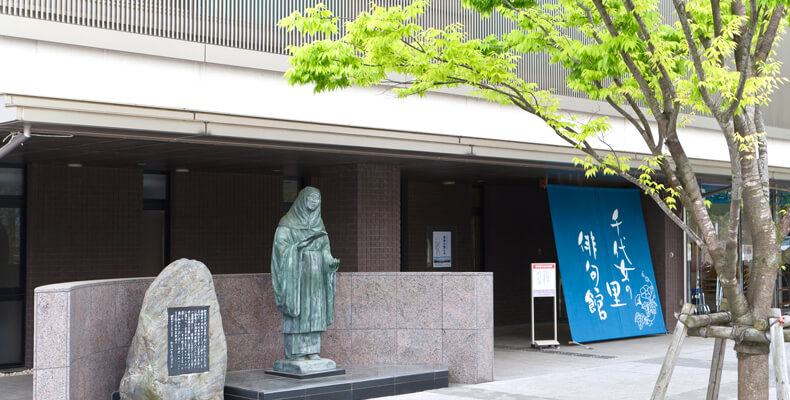
The Matto area of Hakusan City is the birthplace of Kaga no Chiyo-Jo (1703-1775), a female Edo-Period haiku poet known for her poem, "The morning glories have taken my well bucket-- I'll borrow water." You can learn about haiku poems, the shortest poetry in the world composed of three lines with 17 syllables in the 5-7-5 syllable pattern. At the museum, you will find a booth where you can learn about kigo, "season words" that will inspire you to create haiku poems, as well as audiovisual devices that enable you to see scenes and events, and hear sounds, which are unique to each season. The free audio-guide tour is available in English, Chinese and Korean. Next to the museum is Matto Furusato-kan, a folk museum with a garden that provides the perfect quiet environment for creating a haiku poem.
| Address | 310 Tono-machi, Hakusan |
|---|---|
| Open | 9:00am ~ 5:00pm (Admission until 4:30pm) |
| Closed | Monday (if it is a holiday, the following day), Year-end and New Year's holidays and period of exhibit change |
| Admission | Adults: ¥200 (Group ¥100) High school students: ¥100 (Group ¥50) Junior high school students or younger: free |
| Access | IR: Matto Station / Hokutetsu bus: Matto / By car: 10min-ride south on Route 157 from Hakusan IC |
| Parking | IR Matto Station multistory parking (3-hr. free parking for visitors) |
| Tel | 076-276-0819 |
Matto Furusato-kan
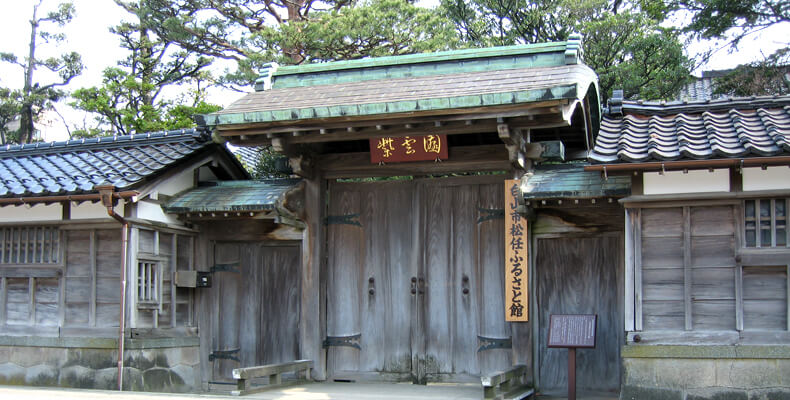
Furusato-kan was used to be the private residence of Mr. Mohei Yoshida, who was active in the financing, rice dealing and warehouse businesses, among others, during the Meiji, Taisho and early Showa Periods. The house was originally located in the current Yasuyoshi-machi, but in 1912 it was relocated to a lot across from IR Matto Station. The main building and garden have been preserved; they make you feel as if you have traveled through time to the Meiji Period. In 1982, the residence was donated to the city, and subsequently it was opened to the public as "Furusato-kan." In 2001, the building was designated as a registered tangible cultural property of Japan.
In the garden called "Shiun-en," there are arrangements of numerous valuable rocks and impressive stone lanterns. You can even find rocks known as "Shiun-seki", which were reportedly favored by Toyotomi Hideyoshi, and are very scarce in other parts of Japan. The garden is beautiful, and its appearance changes with the seasons. Visitors spend an enjoyable, relaxing time there, as well as at the museum's Matto 23 Café (Furusato Café), where they can spend a quiet time enjoying Japanese tea and sweets.
| Address | 56 Tono-machi, Hakusan |
|---|---|
| Open | 9:00am ~ 5:00pm (Admission until 4:30pm) |
| Closed | Monday (if it is a holiday, the following day), Year-end and New Year's holidays and temporary closing |
| Admission | Free |
| Access | IR: Matto Station/ Hokutetsu bus: Matto/ By car: 10min-ride south on Route 157 from Hakusan IC |
| Parking | IR Matto Station multistory parking (3-hr. free parking for visitors) |
| Tel | 076-276-5614 |
Nakagawa Kazumasa Memorial Museum of Art
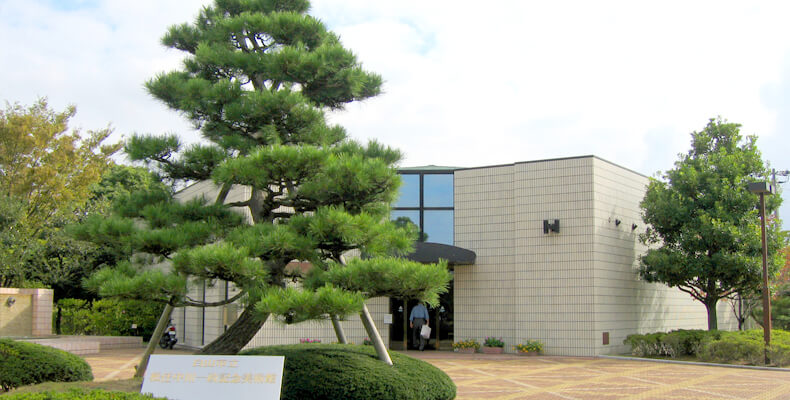
This museum opened to the public in 1986 to exhibit works donated by the painter Nakagawa Kazumasa, a master of Japan's art world and recipient of the Order of Cultural Merit with a close connection to Matto.
Visitors are enchanted by over 60 of Nakagawa's works of art, which are dynamic and rich in variety. At the café in the museum's annex, you can enjoy snacks while enjoying a view of the adjacent Japanese garden.
| Address | 61-1 Asahi-machi, Hakusan |
|---|---|
| Open | 9:00am ~ 5:00pm |
| Closed | Monday (if it is a holiday, the following day), Year-end and New Year's holidays and temporary closing |
| Admission | Adults: ¥200 (Group ¥100) High school students: ¥100 (Group ¥50) Junior high school students or younger: free |
| Access | IR: Matto Station/ Hokutetsu bus: Matto/ By car: 10min-ride south on Route 157 from Hakusan IC |
| Parking | IR Matto Station multistory parking (3-hr. free parking for visitors) |
| Tel | 076-275-7532 |
Taiko no Izumi Kyowakan
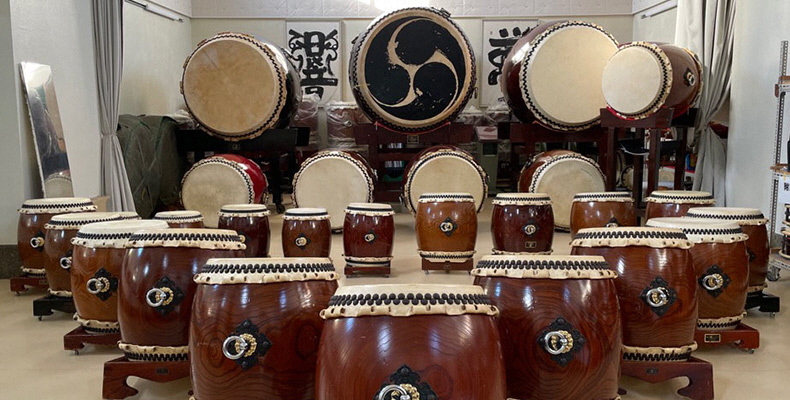
For the promotion and development of taiko drum culture
The Taiko no Izumi Kyowakan is a facility run by the Asano Taiko Cultural Research Institute, with the aim of promoting and developing taiko drum culture.
The facility hosts taiko lessons and workshops, conducts performances and has taiko drums for rent.
Furthermore, they also publish Japan’s only taiko drum magazine “Taiko-logy”, as well as instructional books for taiko drum teachers, educational books for beginner taiko drummers, and manuals for Japanese taiko drums. Through these efforts they’re promoting taiko knowledge throughout Japan and the world.
| Address | 1038-1 Mizushimamachi, Hakusan City, Ishikawa Prefecture |
|---|---|
| Open | (Reception) 10:00am ~ 4:00pm |
| Closed | Tuesdays, new year holidays, and Obon holidays. Unexpected closures possible. |
| Fee | Japanese Taiko Drum Experience ¥ 2,000 per person (one hour), etc. |
| Access | IR: IR Kaga-kasama Station or IR Mikawa Station / By car: Approximately 7 minutes west from the Mikawa IC along prefectural road #58. |
| Parking | 13 spots available. |
| Tel | 076-277-1721 |
| Notes | If you wish to visit the facility as part of a school/educational tour, please contact the Hakusan City Tourism League (TEL 076-259-5893). |
The Tagawa family residence
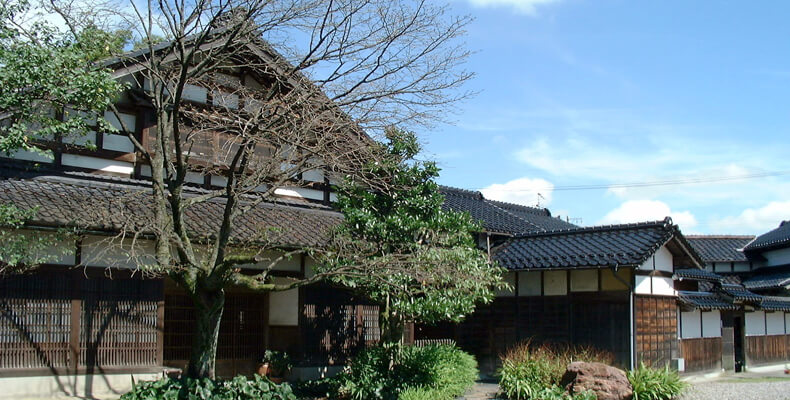
The main building of this residence, which is characterized by an architectural style unique to the Kaga area, is designated as a registered tangible property of Japan. Part of the garden is an important historical remnant, as it reveals how it was when the main building was rebuilt. The earthen storehouse has been turned into a museum with works of art, old documents and folk materials.
| Address | 38 Yotsuya-machi, Hakusan |
|---|---|
| Open | 9:00am ~ 6:00pm |
| Closed | Open throughout the year |
| Admission | Adults: ¥500 (Group of 20 or more people: ¥450) High and junior high school students: ¥300 (Group of 20 or more students: ¥250) Primary school students: ¥200 (Group of 20 or more students: ¥150) |
| Access | IR: Kagakasama Station/ By car: 10min-ride from IR Mikawa Station |
| Parking | Available |
| Tel | 076-277-1718 |
Shoko-ji Temple
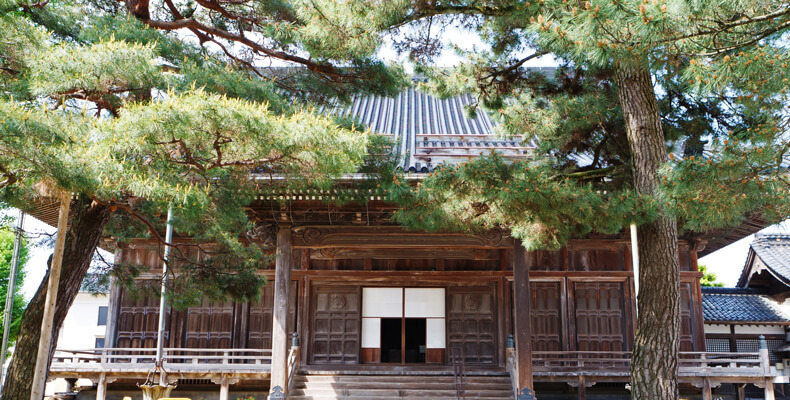
This popular temple is related to "Kaga no Chiyo-Jo," a famous haiku poet from Hakusan City. In the temple precinct is Iho-kan, where you can see some of Chiyo-Jo's personal effects. There is a stone monument known as "Chiyoni-zuka," inscribed with Chiyo-Jo's death poem. Other buildings include important cultural properties of Japan called "Chiyoni-do" and "Sofu-an," where you can reminisce about Chiyo-Jo.
| Address | 56-1 Naka-machi, Hakusan |
|---|---|
| Admission | Chiyoni Ihokan Museum: ¥200 |
| Access | IR: Matto Station/ Hokutetsu bus: Matto/ By car: 5min-ride from IR Matto Station |
| Parking | Available |
| Tel | 076-275-0161 |
Matto Kaihin Koen (CCZ) (Matto Seaside Park)
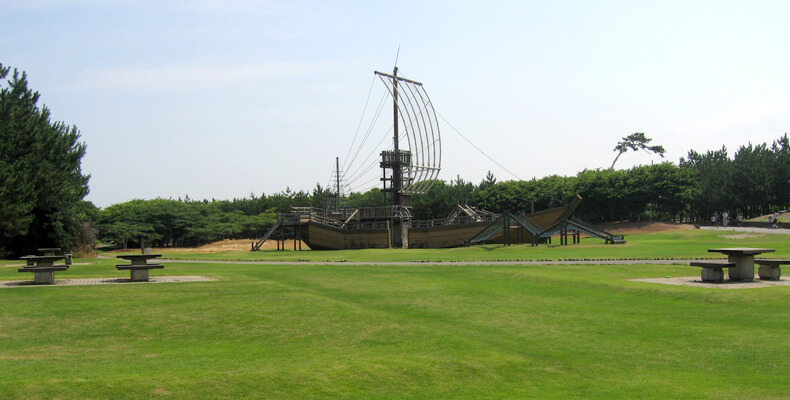
Here you can have a fun time with your family or a group of friends; there is playground equipment, a BBQ area and an open space with grass. Nearby are CCZ Onsen (hot spring facility), an indoor swimming pool, and a commercial facility called "Hakusan Kaido Ichiba." One of the attractions of the park is its convenient location; you don't have to turn off the expressway to get there. In the summer you can enjoy swimming at the adjacent Tokumitsu Beach. Moreover, the view of the sunset in the sea is stunning.
| Address | Sougo-machi, Hakusan |
|---|---|
| Open | [Apr. ~ Jun., Sep. ~ Nov.] 10:00am ~ 5:00pm [Jul.~ Aug.] 10:00 ~ 8:00pm |
| Closed | December ~ end of March |
| Access | IR: Matto Station/ By car: 20min-ride from IR Matto Station |
| Parking | 100 vehicles |
| Tel | 076-274-0639 |
Hakusan City Museum
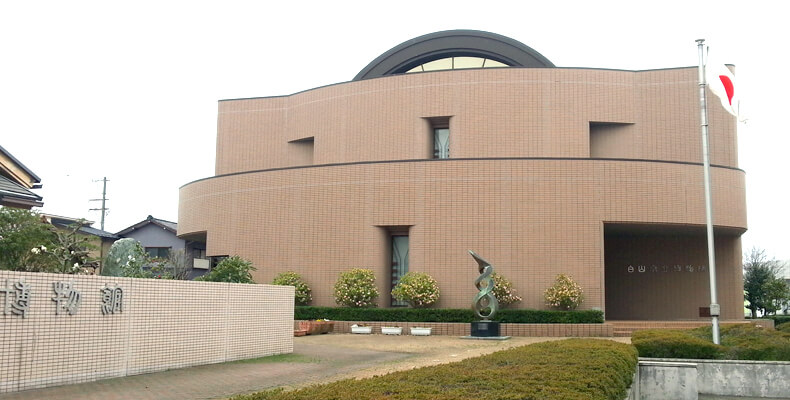
At this museum, a diorama and other items show how Masamine Sumitani, a grand master swordsmith who was designated as a living national treasure, engaged in his work. The second-floor exhibits include cultural properties and outstanding works by prominent people from Matto such as the haiku poet Chiyo-Jo and the Buddhist scholars Haya Akegarasu and Hakka Matsumoto. Another exhibit includes a small-scale reproduction of a historic site designated by the central government in 1972 and known as Yokoe-no-sho: site of a manor on the grounds of Todaiji Temple. Folk materials on display include traditional farming tools used in rural areas.
| Address | 168-1 Nishishin-machi, Hakusan |
|---|---|
| Open | 9:00am ~ 5:00pm (Admission until 4:30pm) |
| Closed | Monday (if it is a holiday, the following day), Year-end and New Year's holidays and the period of exhibit change |
| Admission | Adults: ¥200 High school students: ¥100 Junior high school students or younger: free |
| Access | IR: Matto Station/ Hokutetsu bus: Nishishin-machi |
| Parking | Available |
| Tel | 076-275-8922 |